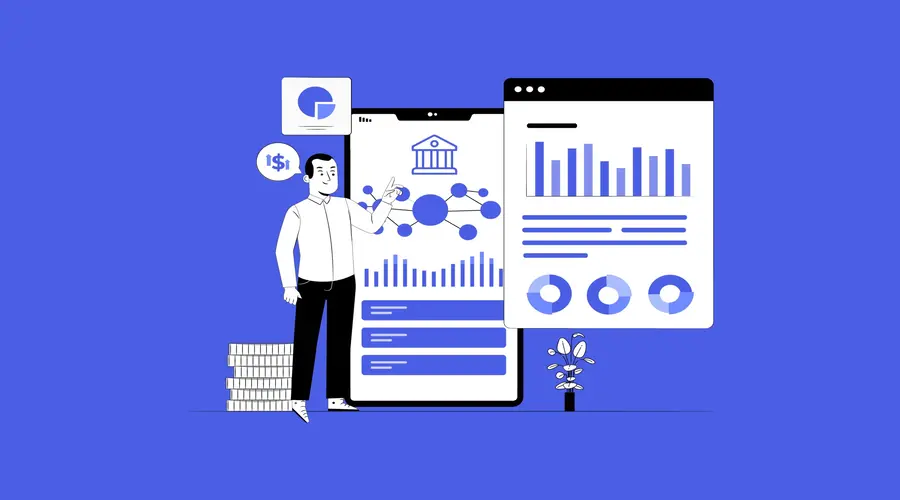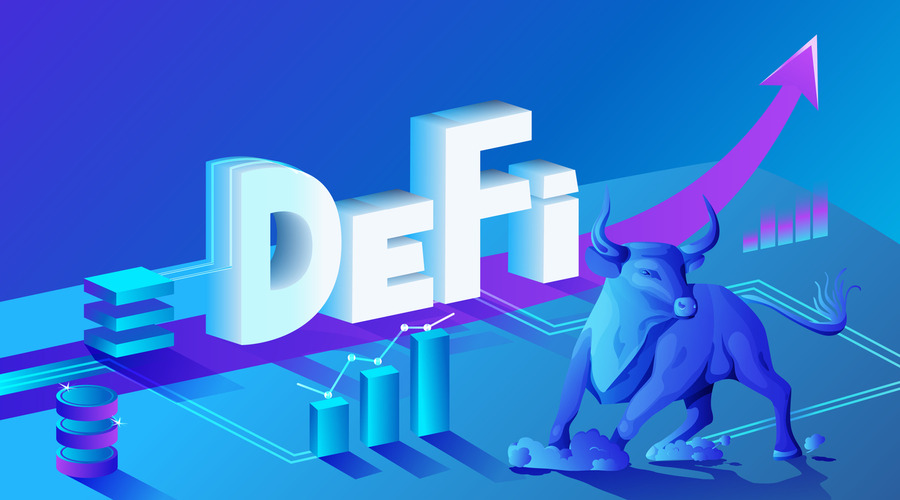In the world of decentralized finance (DeFi), where transactions occur directly between users without intermediaries, it is crucial to ensure the security and integrity of the platform. One of the key aspects of achieving this is by implementing proper access controls. In this article, we will explore the importance of access controls in DeFi platforms and discuss the various strategies and best practices that can be employed to enhance security and protect user funds.
Understanding the Significance of Access Controls in DeFi Platforms
DeFi platforms operate on the principles of decentralization and provide users with the ability to manage their finances without relying on traditional financial institutions. However, this freedom comes with its own set of risks, particularly when it comes to security. Implementing robust access controls is crucial to prevent unauthorized access, protect user funds, and maintain the trust of the community.
Types of Access Controls
- Role-Based Access Control (RBAC)
RBAC is a widely adopted access control model that defines roles and permissions within an organization. It enables administrators to assign specific privileges to different user roles based on their responsibilities and access requirements.
- Attribute-Based Access Control (ABAC)
ABAC grants access based on attributes associated with users, resources, and environmental conditions. This flexible model allows for fine-grained access control, taking into account multiple factors such as user attributes, resource attributes, and contextual attributes.
- Discretionary Access Control (DAC)
DAC gives users the discretion to control access to resources they own. Each user can independently determine who can access their resources and what level of access is granted.
- Mandatory Access Control (MAC)
MAC enforces access controls based on predefined security policies. Access decisions are made by the system rather than the users, ensuring consistency and preventing unauthorized access.
Implementing Role-Based Access Control (RBAC)
RBAC plays a crucial role in managing access controls within DeFi platforms. Here are some best practices for implementing RBAC effectively:
Defining Roles and Permissions
Start by identifying the different roles within your platform, such as administrators, users, validators, and auditors. Define the specific permissions and access rights associated with each role.
Assigning Roles to Users
Assign roles to users based on their responsibilities and job functions. Ensure that users are only granted the necessary permissions required to perform their tasks.
Regularly Reviewing and Updating Roles
Perform regular reviews of roles and permissions to ensure they align with the evolving needs of the platform. Remove any unnecessary privileges and update roles as the platform’s functionalities expand.
Strengthening Access Controls with Multifactor Authentication (MFA)
Multifactor Authentication (MFA) adds an extra layer of security by requiring users to provide multiple forms of identification before granting access. Some common MFA methods include:
Passwords and Two-Factor Authentication (2FA)
Encourage users to set strong passwords and enable two-factor authentication. By combining something the user knows (password) with something they have (e.g., a mobile device), the likelihood of unauthorized access is significantly reduced.
Biometric Authentication
Leverage biometric data such as fingerprint or facial recognition for user authentication. Biometrics offer a high level of security as they are unique to each individual and difficult to replicate.
Hardware Security Keys
Hardware security keys provide an additional layer of protection against unauthorized access. These physical devices generate unique cryptographic signatures, making them highly resistant to phishing and other cyber threats.

Monitoring and Auditing Access
Continuous monitoring and auditing of access activities are vital for detecting and mitigating potential security breaches. Consider the following measures:
Real-Time Activity Monitoring
Implement real-time monitoring systems to track user activities and identify any suspicious behavior. This allows for immediate response and proactive security measures.
Log Analysis and Event Correlation
Regularly analyze logs and correlate events to identify patterns or anomalies. This helps in detecting unauthorized access attempts and provides valuable insights for improving security controls.
Periodic Audits and Penetration Testing
Conduct regular audits and penetration testing to evaluate the effectiveness of access controls. These assessments help uncover vulnerabilities and provide an opportunity to rectify any security weaknesses.
Protecting User Funds with Smart Contracts
Smart contracts play a crucial role in DeFi platforms, as they govern the execution of transactions and manage user funds. To ensure the security of user funds, consider the following practices:
Code Review and Security Audits
Thoroughly review the codebase of smart contracts and engage third-party security auditors to identify any vulnerabilities or weaknesses. Regular security audits are essential to maintain the integrity of the platform.
Secure Wallet Integration
Integrate secure wallet solutions that comply with industry standards and offer robust encryption for private keys. This minimizes the risk of unauthorized access to users’ funds.
Ensuring Proper Functioning of Smart Contracts
Regularly monitor the functioning of smart contracts and promptly address any issues or vulnerabilities. Keep the community informed about any updates or changes made to the contracts.
Educating Users on Security Best Practices
Promoting security awareness among platform users is crucial to prevent common security pitfalls. Provide clear guidelines and educate users about the following best practices:
Strong Passwords and Regular Updates
Encourage users to choose strong passwords, avoid password reuse, and regularly update their login credentials. Educate them about the importance of password hygiene to minimize the risk of unauthorized access.
Phishing and Social Engineering Awareness
Raise awareness about phishing attacks and social engineering techniques. Teach users how to identify suspicious emails, websites, and requests for sensitive information.
Secure Storage of Private Keys
Educate users on secure storage practices for private keys, such as using hardware wallets or encrypted storage solutions. Remind them never to share their private keys with anyone.
Collaborating with Security Experts and Auditors
Engaging with external security experts and auditors adds an extra layer of scrutiny and expertise to your security practices. Consider the following collaborations:
Engaging with External Auditors
Hire independent security auditors to assess your platform’s security controls and provide recommendations for improvement. Their expertise can help identify blind spots and enhance overall security.
Bug Bounty Programs
Implement bug bounty programs to incentivize security researchers and the community to identify and report potential vulnerabilities. This collaborative approach strengthens your security posture through crowd-sourced testing.
Challenges
- Complexity of Decentralized Infrastructure: DeFi platforms operate on decentralized networks, making access control implementation more complex. Coordinating and synchronizing access controls across multiple nodes and smart contracts can be challenging, requiring careful design and implementation.
- Balancing Security and User Experience: Striking the right balance between robust security measures and a seamless user experience is a challenge. While strong access controls are necessary, they should not hinder user onboarding or impede the user’s ability to interact with the platform effectively.
- Dynamic Nature of DeFi Platforms: DeFi platforms are constantly evolving, with new features, protocols, and integrations being added regularly. This dynamic nature makes it challenging to adapt access controls to accommodate changing requirements and maintain security without disrupting platform functionality.
- User Privacy Concerns: Access controls involve collecting and managing user data, which raises privacy concerns. It is essential to implement access controls in a way that respects user privacy, protects sensitive information, and complies with relevant data protection regulations.
- Smart Contract Vulnerabilities: DeFi platforms heavily rely on smart contracts, which can be vulnerable to coding errors and security flaws. Ensuring the security of smart contracts requires rigorous code review, security audits, and continuous monitoring to identify and address potential vulnerabilities.
- User Awareness and Education: Users may not fully understand the importance of access controls or the risks associated with improper security practices. Educating users about security best practices and raising awareness about potential threats is crucial but can be challenging to achieve on a large scale.
- Regulatory Compliance: DeFi platforms operate in a regulatory landscape that is still evolving. Implementing access controls that comply with existing regulations and staying updated with evolving regulatory requirements can be a significant challenge for platform operators.
Addressing these challenges requires a comprehensive approach that combines technical expertise, user education, continuous monitoring, and collaboration with security experts. By addressing these challenges effectively, DeFi platforms can enhance their security measures and provide a safer environment for users to engage in decentralized finance.
Conclusion
Implementing proper access controls in DeFi platforms is paramount to safeguard user funds and maintain the trust of the community. By following best practices such as role-based access control, multifactor authentication, monitoring and auditing, secure smart contract development, user education, and collaborating with security experts, platforms can significantly enhance their security posture.
By prioritizing access controls, DeFi platforms can create a secure and trustworthy environment where users can confidently engage in financial transactions without compromising their funds.
FAQs (Frequently Asked Questions)
- What are access controls in DeFi platforms?
- Access controls in DeFi platforms refer to the mechanisms and practices put in place to regulate user access to the platform and its resources. They play a vital role in ensuring the security and integrity of the platform.
- Why are access controls important in DeFi platforms?
- Access controls are crucial in DeFi platforms to prevent unauthorized access, protect user funds, and maintain the trust of the community. They help mitigate the risk of security breaches and ensure the platform operates in a secure manner.
- What is role-based access control (RBAC)?
- Role-based access control (RBAC) is an access control model that defines roles and permissions within an organization or system. It allows administrators to assign specific privileges to different user roles based on their responsibilities and access requirements.
- How can multifactor authentication (MFA) enhance access controls?
- Multifactor authentication (MFA) adds an extra layer of security by requiring users to provide multiple forms of identification before granting access. It reduces the risk of unauthorized access by combining different authentication factors such as passwords, biometrics, and hardware security keys.
- Why is user education important in maintaining access controls?
- User education is crucial in maintaining access controls as it empowers users to follow security best practices and avoid common security pitfalls. Educating users about strong passwords, phishing awareness, and secure storage of private keys helps create a more secure platform environment.


